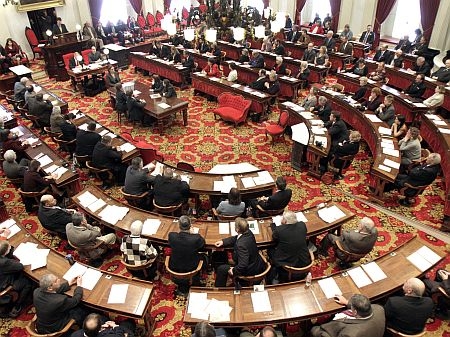
(Host) The House has advanced an energy bill that increases opportunities for Vermonters to make their own electricity.
But there remains opposition to a proposed fee on electric bills that would fund renewable energy programs.
As VPR’s John Dillon reports, that fee proposal sparked a heated exchange in the Democratic caucus.
(Dillon) East Montpelier Democrat Tony Klein chairs the House Energy and Natural Resources Committee. Klein says the energy bill is not really groundbreaking legislation but builds on initiatives the Legislature has launched in the past.
(Klein) "Instead of really initiating new stuff that we haven’t done before, we’re making sure that things that we have put in place remain in place."
(Dillon) The bill expands a program that allows people to generate their own electricity and sell it back to utilities. That’s known as "net-metering," and the bill raises the cap on how much power can be sold back.
Net-metering is not that controversial. But a proposal for a new charge on utility bills to fund renewable projects led to raised voices in the Democratic caucus.
Barre Independent Paul Poirier says the proposed 55-cent monthly fee amounts to a regressive tax on poor people. He wants to exempt low income Vermonters.
And in the Democratic caucus, Poirier asked Energy Committee Chairman Tony Klein if he would support his amendment. Klein said no, and began to walk away. That prompted an angry response from Poirier.
(Poirier) "Then why did you call me last night and said that you would?"
(Klein) "I said I appreciated… "
(Poirier) "Tony, Tony, Tony, you lied last year on the floor and you’re lying again!"
(Dillon) Klein said later that he supports the idea of protecting low income people from the new energy fee. But he said he had not promised Poirier that he would support his amendment. Klein said he has learned a basic rule of the Legislature:
(Klein) "Until you hear the words from somebody that says: ‘I will vote for your bill or your amendment,’ there is no contract."
(Dillon) Poirier is also a veteran of the legislative process. And he says he chose his words carefully.
(Poirier) "I’ve been around this game for a long time, and I’ve never called a person a liar in my life. And I knew exactly what I said, and I made a point to repeat it."
(Dillon) Poirier led an unsuccessful fight late last month to hike income taxes on upper income Vermonters to fund social programs. He’s clearly frustrated that he couldn’t get Democrats to go along.
(Poirier) "But it’s okay for the Democrats to tax the lowest people and create a fund so that we can give grants to the wealthier people so that they can enjoy their solar panels or whatever, paid for by poor people."
(Dillon) Some low income advocates also see the energy fee as a regressive tax. Tim Searles is the director of community outreach for the Champlain Valley Office of Economic Opportunity.
(Searles) "I think there needs to be an exemption built into this charge for low income Vermonters and a discussion about how we define that, and at the very least it be for anybody receiving any type of energy assistance currently."
(Dillon) But Klein says the fee amounts to just $6.60 a year for individual customers. He says it’s worth it because the renewable energy fund supports businesses that account for hundreds of jobs around Vermont.
The fee will be debated again when the bill comes up for final approval.
For VPR News, I’m John Dillon in Montpelier